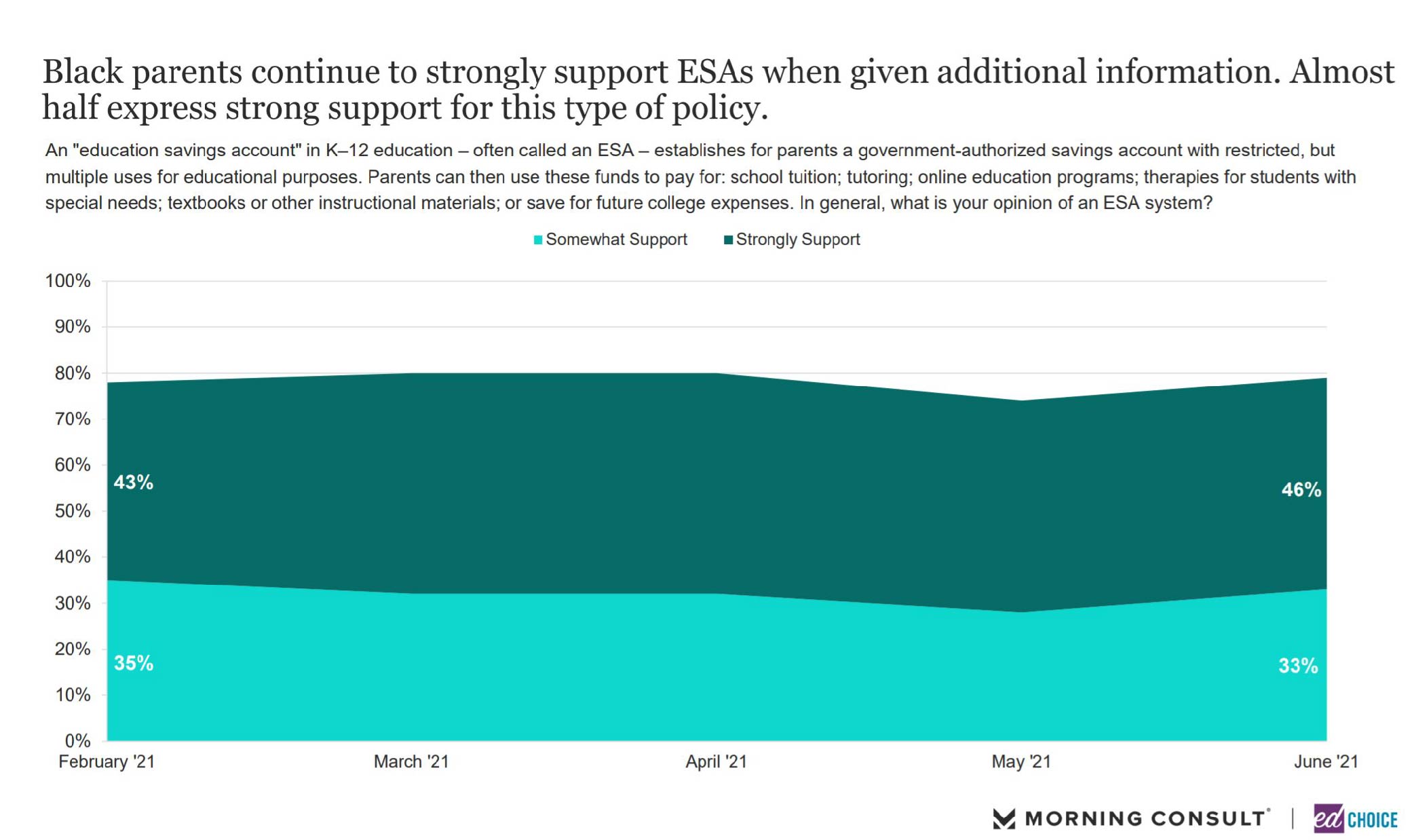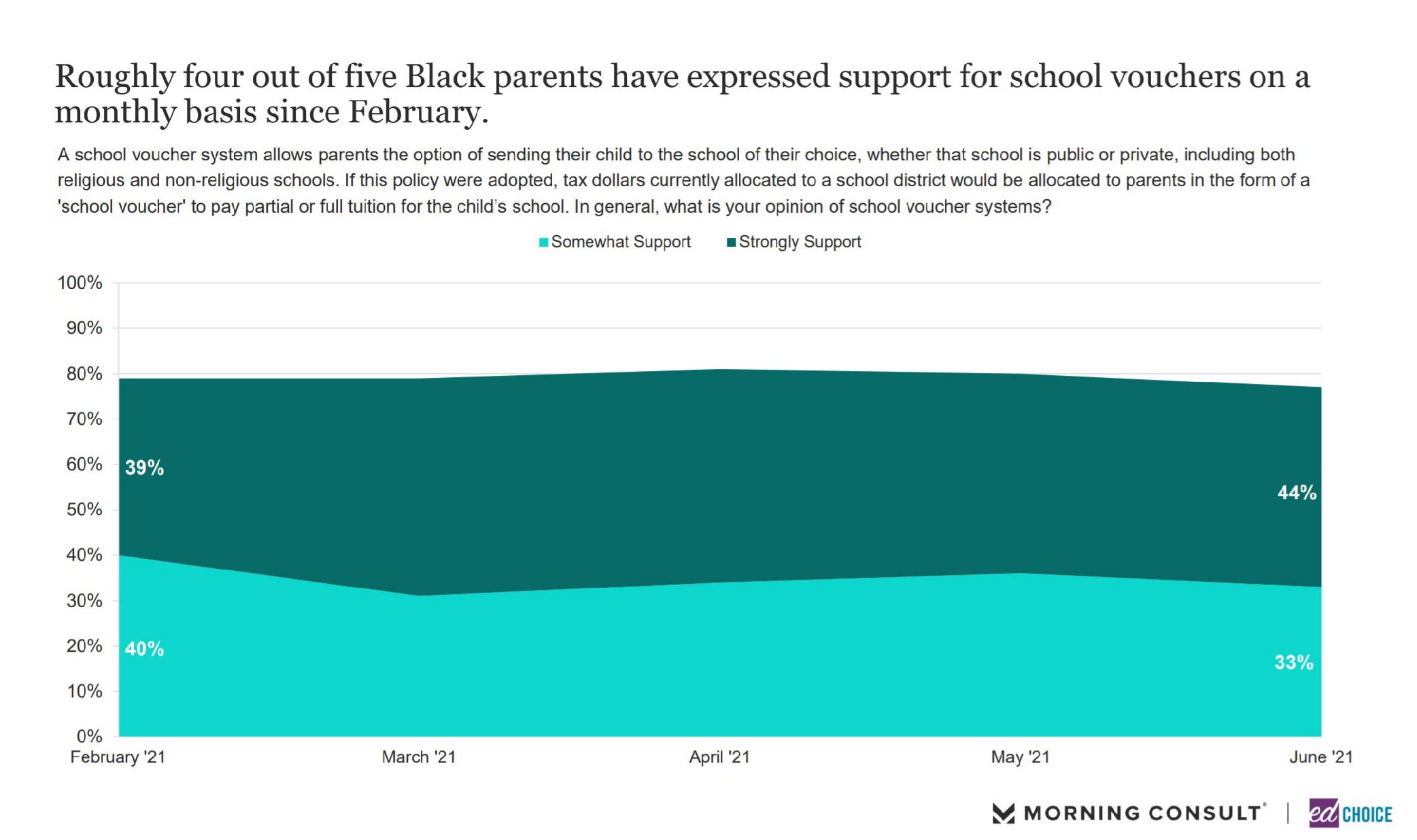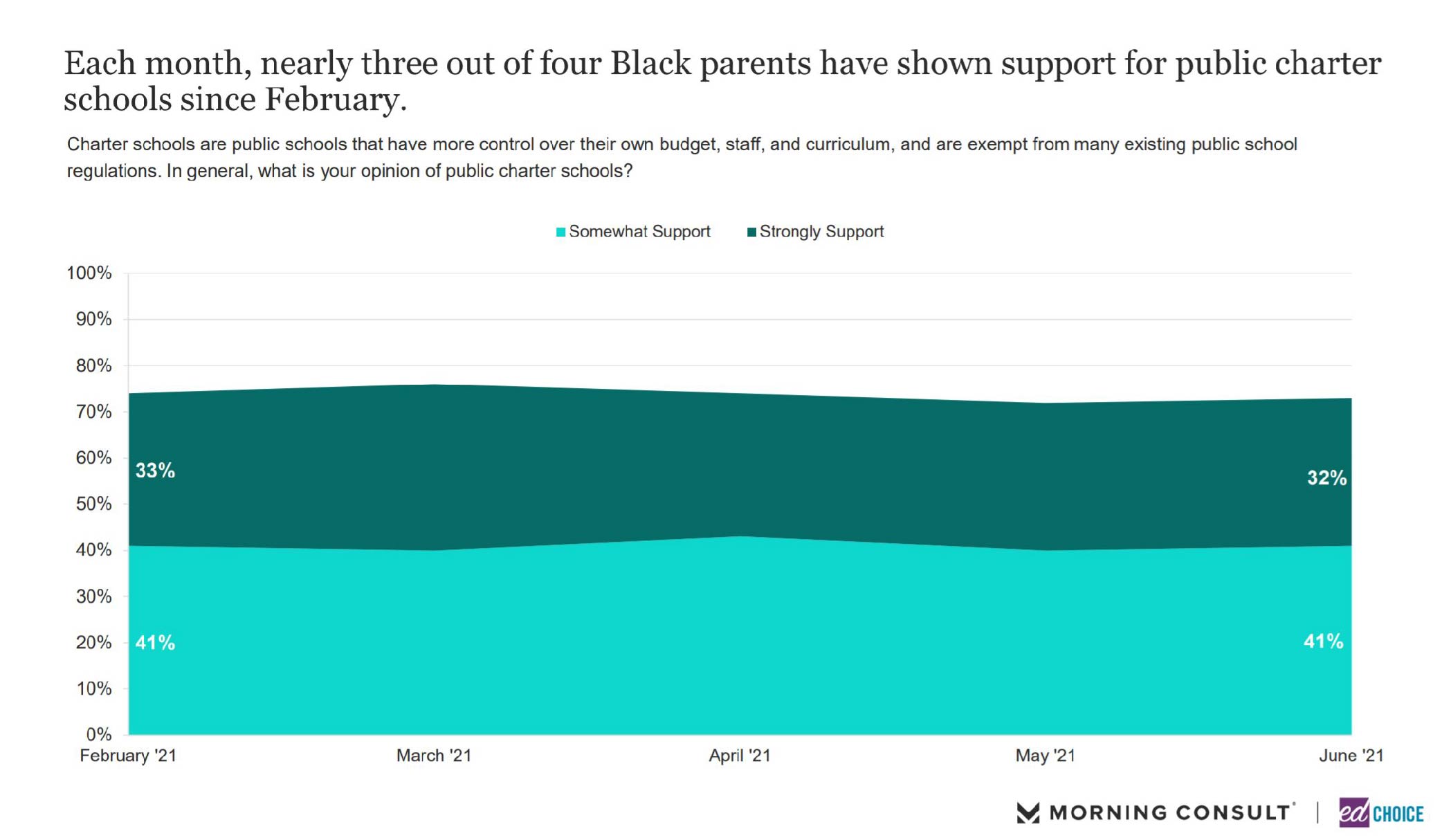Public Opinion Tracker Deep Dive: Black K-12 Parent Perspectives (June 2021)
With a new academic year rapidly approaching, schools are making final decisions about how to serve their students, families and broader communities. The last year has seen historic injections of funds into schools, as well as unprecedented expansions of school choice options for families.
Given well-documented ways Black families have experienced the educational fallout from the pandemic, it is important to understand their perspectives on the upcoming school year. To learn more about those perspectives, we began oversampling Black families in February 2021.
Each month, we poll a nationally representative sample of American adults aged 18 and over. Our June 2021 survey was in the field June 11–17 and received responses from 2,200 people. Between June 11 and July 7, we surveyed 440 Black parents of school-aged children, which includes an oversampling of 300 Black parents. We also obtained survey responses from a nationally representative sample of 1,228 K-12 school parents, which includes an oversampling of 700 school parents.
1. COVID-19 vaccines have grown rapidly more favorable among Black parents, though they remain somewhat less comfortable with in-person education than other parents. The share of Black parents who said they had been or would agree to receive a COVID-19 vaccine jumped 15 percentage points from May to June, although the share who would agree to have their child vaccinated grew much less substantially.

After three months of rather marginal growth, the share of Black parents who said they were at least somewhat comfortable with their children returning to in-person schooling increased 9 percentage points from May to June, now sitting at 64 percent.

2. Black parents agree with white and Hispanic parents on several—but not all—questions regarding inclusivity and diversity in their local school. Roughly, about three out of four parents agreed with six statements about inclusivity and diversity in their local school. For four of the six questions, Black, white and Hispanic parents were within 2 percentage points of each other. We observed Black parents were noticeably less likely to agree than white or Hispanic parents on two of the items: that the local school “treats all students equally regardless of their race or background” and “emphasizes showing respect for all students’ cultural beliefs and practices.” Black parents also were less likely to agree that their local school “teaches American history from a variety of perspectives” and that “all students feel welcome” than white or Hispanic parents. They were more likely to agree that teachers should have more control over curriculum.

3. Black parents remain more likely to want some schooling to take place at home than other parents. Forty percent of Black parents indicated their ideal school week would involve three to five days of education occurring at home, though the share preferring school to take place completely outside the home increased 5 percentage points from May to June. At 32 percent, the share of Black parents preferring two to three days of school at home nearly matches that of parents preferring entirely classroom education.
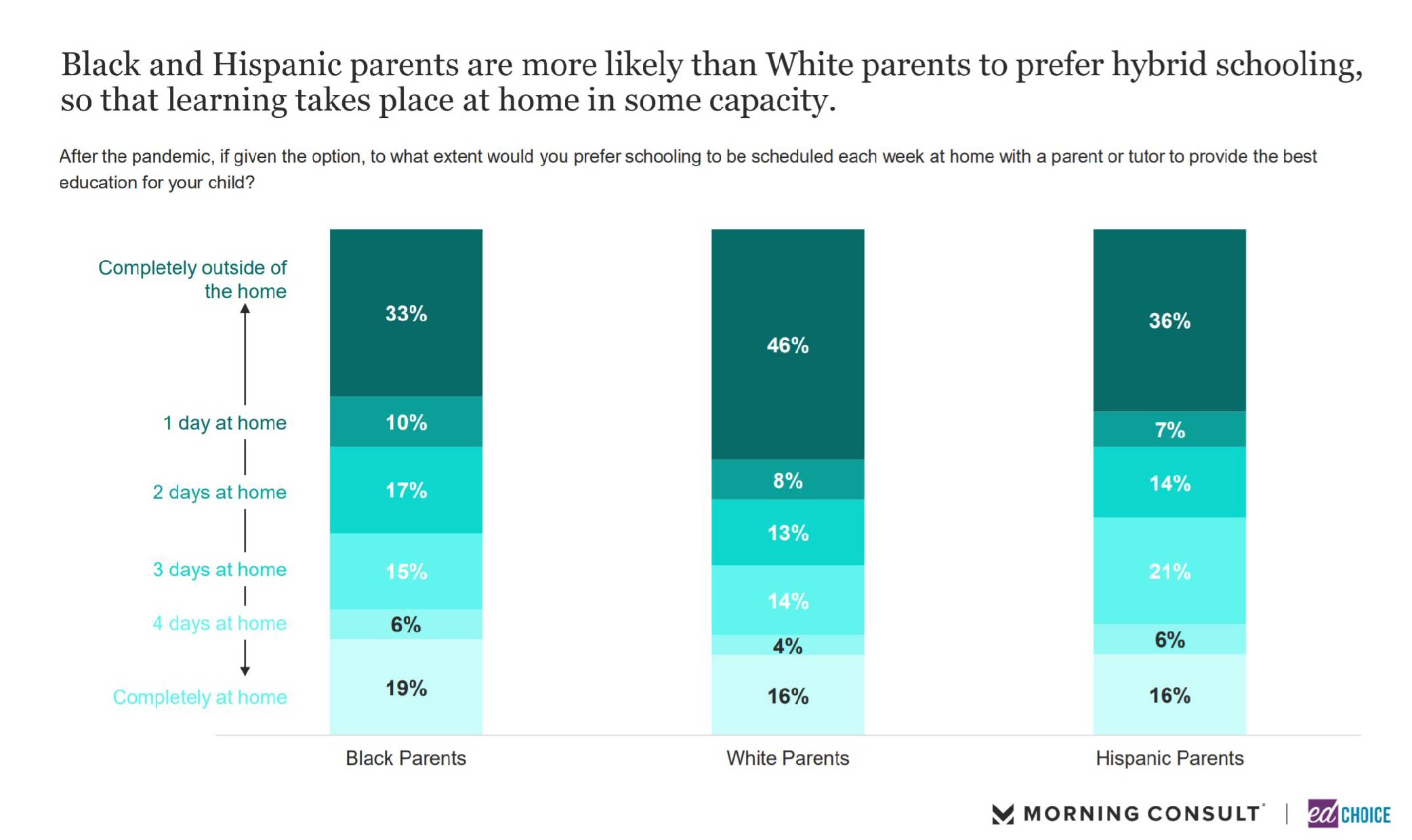
4. Despite a decline in interest, nearly half of Black parents are involved in or wish to begin tutoring for their child. The share of parents who indicated their children were receiving tutoring remained essentially unchanged from May to June; however, the share saying they were actively looking or planning to look for a tutor declined 4 percentage points respectively.
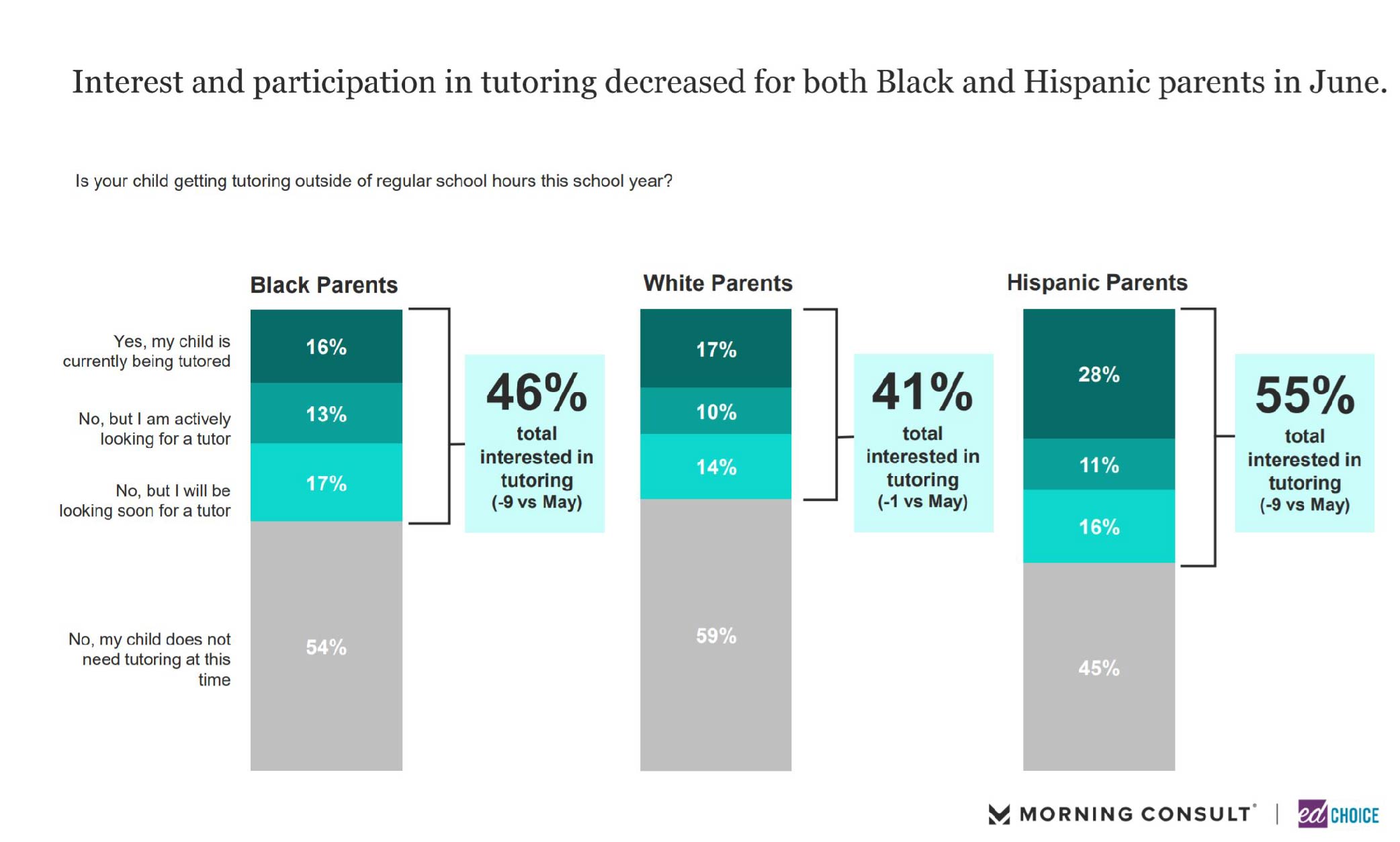
5. Education savings accounts (ESAs) are now the most popular major school choice policy among Black parents. Support for three major school choice policies remains very high among Black parents, at 79 percent support for ESAs, 77 percent for private school vouchers and 73 percent support for charter schools. This is the first time since March ESAs have eclipsed vouchers as the most popular school choice policy among Black parents. Support among Black parents exceeds that of white parents for each of the three policies.
